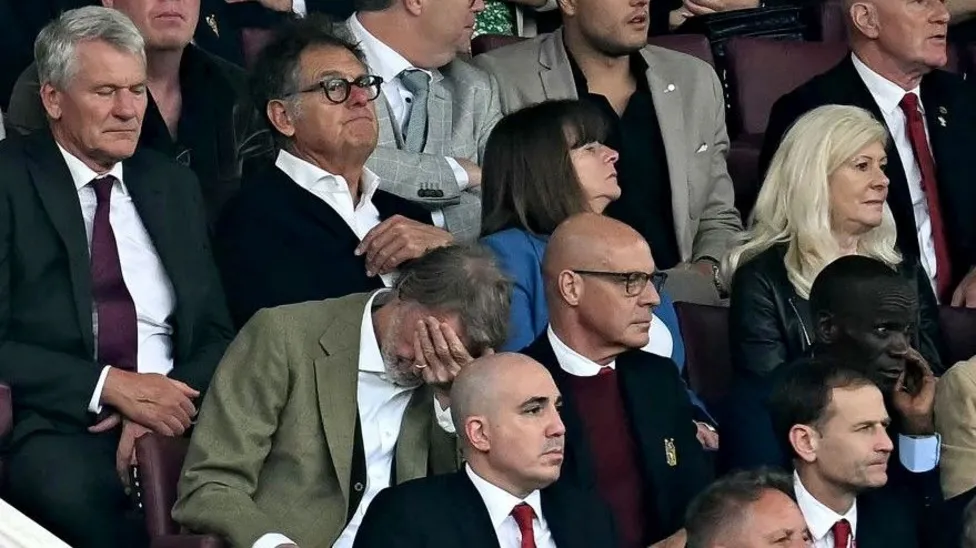In a sport where every game is scrutinized under a microscope, Manchester United manager Erik ten Hag found himself in a challenging position after his team's 3-0 home defeat to Liverpool. Instead of a standard post-match analysis, Ten Hag chose a unique and attention-grabbing way to address the situation, stating, "I'm not Harry Potter," a reference to the fictional wizard known for his magical abilities. This remark was his way of emphasizing that success in football is not conjured with a magic wand but requires time, effort, and patience.
Ten Hag's comment came after a particularly tough match where Liverpool outplayed Manchester United, scoring three goals—two from Luis Diaz in the first half and a third from Mohamed Salah shortly after the break. Despite the bitter taste of defeat, Ten Hag remained optimistic, stressing that while the match was difficult, the season was still young, and there were opportunities ahead for improvement.
His remarks highlighted the fact that several of his players, including new signing Manuel Ugarte, were still adapting to the team. Ugarte, who was introduced to the fans before the match but was not ready to play, exemplifies the point that building a cohesive unit takes time. Ten Hag’s reference to Harry Potter was a metaphorical way of saying that there are no quick fixes in football; it is a process of growth and development.
The Harry Potter Analogy and Football Reality
By invoking the image of Harry Potter, Ten Hag aimed to temper expectations. Fans and media alike often expect immediate success, especially at a club as prestigious as Manchester United. However, Ten Hag’s message was clear: success doesn’t happen overnight. The integration of new players, the building of team chemistry, and the development of a winning strategy all require time.
Individual and Team Performance
The game against Liverpool was not just a test of Ten Hag's strategies but also an evaluation of individual performances. For instance, Joshua Zirkzee, a Dutch forward, had a mixed game, showing flashes of brilliance but missing key opportunities that could have changed the outcome. Similarly, Matthijs de Ligt, who partnered with Lisandro Martinez in defense, did not look entirely comfortable, which allowed Liverpool to capitalize on defensive errors.
These performances underscored the challenges that Ten Hag faces in molding his squad into a cohesive and competitive team. Yet, despite these struggles, Ten Hag refused to dwell on the negatives, instead focusing on the broader picture and the long-term goals of the team.
Looking Forward to Future Success
Despite the negative result, Ten Hag remained confident about the future. He dismissed the pessimistic view that the team was repeating past mistakes, arguing instead that the team was on a path of improvement. He acknowledged that building a strong team takes time, and he expressed confidence that by the end of the season, Manchester United would be in a position to challenge for silverware.
Ten Hag's emphasis on long-term development was a reminder that football is a marathon, not a sprint. He urged patience from the fans and the media, promising that with time, the team would become stronger and more competitive.
Casemiro's Tough Day
One of the most notable aspects of the match was the performance of veteran midfielder Casemiro, who was at fault for two of Liverpool's goals. The Brazilian gave away possession cheaply for the first goal and was outmuscled by Diaz for the second. Ten Hag made the bold decision to substitute Casemiro at halftime, bringing on the young Toby Collyer in an attempt to inject some energy and dynamism into the midfield.
There were rumors that Casemiro had left the stadium early, but Ten Hag quickly dismissed these claims, insisting that the player remained committed to the team despite his off day. Ten Hag’s decision to substitute Casemiro was not an indictment of the player’s abilities but rather a tactical move aimed at altering the course of the match.
Conclusion
Erik ten Hag’s response to the defeat against Liverpool was not only a defense of his team but also a lesson in the realities of football. By stating, "I'm not Harry Potter," Ten Hag highlighted that there are no magical solutions in football. Success is built through hard work, careful planning, and time.
While the loss was undoubtedly a setback, Ten Hag’s confidence in his team's ability to bounce back suggests that Manchester United fans have reason to remain hopeful. The road to success is never easy, but with the right mindset and a commitment to improvement, even the toughest challenges can be overcome. Ten Hag may not be a wizard, but with his experience and vision, he has the tools to guide Manchester United back to the top—if given the time to do so.
